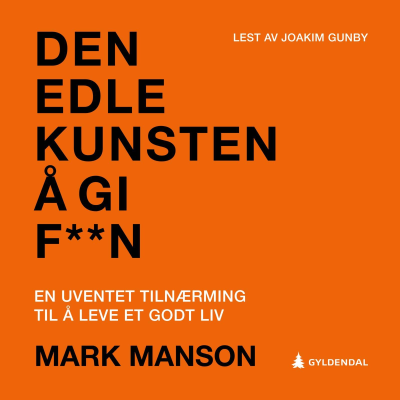
Building the Base
Podkast av Building the Base
"Building the Base" - an in-depth series of conversations with top entrepreneurs, innovators, and leaders from tech, financial, industrial, and public sectors. Our special guests provide their unique perspectives on a broad selection of topics such as: shaping our future national security industrial base, the impact of disruptive technologies, how new startups can increasingly contribute to national security, and practical tips on leadership and personal development whether in government or the private sector. Building the Base is hosted by Lauren Bedula, is Managing Director and National Security Technology Practice Lead at Beacon Global Strategies, and the Honorable Jim "Hondo" Geurts who retired from performing the duties of the Under Secretary of the Navy and was the former Assistant Secretary of the Navy for Research, Development & Acquisition and Acquisition Executive at United States Special Operations Command.
Tidsbegrenset tilbud
3 Måneder for 9,00 kr
Deretter 99,00 kr / MånedAvslutt når som helst.
Alle episoder
76 EpisoderIn this episode of Building the Base, Hondo Geurts and Lauren Bedula sit down with Ranking Member Jim Himes (D-CT), who serves on both the House Permanent Select Committee on Intelligence and the House Financial Services Committee. Drawing from his unique background spanning Wall Street and public service, Congressman Himes discusses the critical intersection of technology innovation, national security, and America's industrial base. He shares candid insights on the challenges of government innovation, the evolving threat landscape from China, and why immigration remains America's secret weapon in the global competition for technological supremacy. The conversation also explores the cultural shifts needed within both Congress and the defense establishment to embrace the iterative, failure-tolerant approach essential for modern software development and emerging technologies. Five key takeaways from today's episode: 1. The shift from hardware to software has fundamentally changed defense acquisition, Rep. Himes explains, requiring iterative development through failure and constant end-user contact—a capability traditional defense primes weren't prepared for, though progress is being made through innovative programs like DIU and Kessel Run. 2. America's two greatest advantages over China in innovation, according to Rep. Himes, are immigration and a chaotic entrepreneurial ecosystem that treats failure as graduate-level education for the next venture, advantages that must be preserved and leveraged. 3. Congressional culture remains risk-averse toward failure, Rep. Himes notes, with members more focused on finding the next "Solyndra" to investigate rather than creating the psychological safety necessary for breakthrough innovation. 4. Supply chain vulnerabilities exposed by COVID-19 and the Ukraine conflict have created new appreciation for defense industrial base resilience, but Rep. Himes argues the tension between economic efficiency and strategic security requires nuanced thinking. 5. Emerging threats like biosynthesis and quantum computing pose existential risks that require both cutting-edge research investment and a return to shared empirical truth, Rep. Himes warns, making the intersection of technology policy and national security more critical than ever.
In this episode of Building the Base, Hondo Geurts and Lauren Bedula reconnect with Cameron McCord, Co-Founder and CEO of Nominal, two years after his first appearance on the show (linked here [https://buildingthebase.org/episode/biz-peabody-director-of-defense-policy-business-development-at-shield-ai-cameron-mccord-head-of-defense-at-saildrone-and-akhil-iyer-vice-president-at-shield-capital]). Drawing from his unique journey from submarine officer (484 days underwater) to defense tech entrepreneur, McCord discusses building software to accelerate testing and validation of mission-critical systems. He shares insights from his time at Anduril, Applied Intuition, and Saildrone, and how these experiences shaped Nominal's approach to modernizing test and evaluation processes. The episode concludes with exciting news that Nominal recently announced a $75 million Series B led by Sequoia Capital and co-led by Lightspeed Venture Partners. Five key takeaways from today's episode: 1. Entrepreneurial success, according to McCord, requires falling in love with the process itself rather than just the initial idea, as markets, technology, and competition will force constant adaptation and iteration throughout the journey. 2. Testing and validation software in defense hasn't been meaningfully innovated in decades, McCord explains, creating massive opportunities to modernize from "2002 to 2019" standards using basic automation and data practices before advancing to AI capabilities. 3. The most valuable customer conversations, McCord notes, evolve from incremental efficiency gains at the engineer level to strategic business impact discussions about reducing 24-month test campaigns to 18-20 months for major defense programs. 4. Rather than leading with confidence, McCord advises asking genuine questions to allow customers to reveal what's truly valuable to them, while learning when to say "not right now" instead of forcing poor fits often leads to higher revisit rates. 5. Cross-functional experience across military service, government, startups, and venture capital has provided McCord with invaluable perspective for navigating complex stakeholder environments and understanding what success looks like from multiple viewpoints.
In this episode of Building the Base, Hondo Geurts and Lauren Bedula are joined by James Parker and Chris Lay, co-founding partners of Leonid Capital Partners [https://leonidcp.com/], a private credit fund supporting the US national security ecosystem. Drawing from their unique backgrounds in astrophysics and neuroscience, Parker and Lay discuss how their innovative lending approach fills a critical gap in defense tech financing, offering credit facilities based on government contracts rather than traditional equity investments. Five key takeaways from today's episode: 1. Traditional banks won't lend against government contracts due to 30-day cancellation clauses, creating a significant financing gap that specialized credit funds like Leonid can fill by lending 50-60% of contract values at set interest rates rather than taking equity stakes. 2. Trusted capital is essential for national security, with clean funding sources becoming increasingly important as private investment surges into defense tech, requiring deliberate vetting to avoid potential foreign influence or undue investor pressure. 3. Mission-driven business models can accelerate growth, with Leonid's commitment to donate 50% of profits creating competitive advantages through stronger relationships, advisory connections, and credibility with service-disabled veteran-owned businesses. 4. Policy changes could unlock more private investment in national security, particularly through preferential tax treatment for investors in critical defense initiatives while potentially removing tax advantages for investments in adversarial economies. 5. Cross-sector talent recruitment requires both patriotic appeal and economic incentives, with successful defense tech companies like Palantir and Anduril demonstrating that technical talent will engage with national security missions when there's potential for both meaningful impact and financial success.
In this episode of Building the Base, Hondo Geurts and Lauren Bedula are joined by Becca Wasser and Philip Sheers from the Center for New American Security (CNAS) to discuss their recent report, "From Production Lines to Front Lines." [https://www.cnas.org/publications/reports/from-production-lines-to-front-lines] Drawing from extensive industry research and stakeholder interviews, Wasser and Sheers offer a comprehensive look at the critical challenges and opportunities facing America's defense industrial base in an era of great power competition. Five key takeaways from today's episode: 1. Workforce remains the greatest limitation to manufacturing growth, with Wasser emphasizing "it's the workforce, stupid" as a core barrier that requires creative solutions like expanding AmeriCorps to include defense industrial base career paths. 2. The defense industrial base has experienced decades of consolidation and lacks responsiveness to changing battlefield needs, demonstrated by challenges in ramping up production for Ukraine despite Herculean efforts from senior leaders. 3. Structural vulnerabilities include outsourced supply chains to adversary-controlled regions and over-reliance on single-source sub-tier suppliers, creating critical bottlenecks that threaten both capacity and responsiveness in future conflicts. 4. Small but actionable policy changes could yield significant improvements, such as allowing multi-year procurement of critical components like solid rocket motors without requiring an end item, providing immediate flexibility for production scaling. 5. International partnerships with allies are essential for both learning from advanced manufacturing capabilities and creating resilient co-production arrangements, with countries like Japan and South Korea offering critical shipbuilding expertise that could augment America's defense industrial capacity.
In this episode of Building the Base, Hondo Geurts and Lauren Bedula sit down with John Maslin, Co-founder and CEO of Vulcan Elements [https://vulcanelements.com/], for an insightful conversation about the critical importance of rare earth magnets to U.S. national security. Drawing from his background as a Navy Supply Corps officer and his entrepreneurial journey, Maslin offers a candid look into the challenges and opportunities in rebuilding America's rare earth magnet manufacturing capabilities. Five key takeaways from today's episode: 1. Rare earth magnets are essential "invisible building blocks" of our economy, found in virtually all electronic devices from smartphones to MRIs, as well as critical defense applications - yet China currently manufactures over 90% of the global supply while the U.S. produces less than 1%. 2. The rare earth challenge isn't primarily about access to raw materials but rather about processing and manufacturing capabilities, with China having made a strategic decades-long investment that has given them near-complete control of this critical supply chain. 3. Transitioning from government service to entrepreneurship, Maslin emphasizes the importance of mission-driven leadership when tackling strategic manufacturing challenges that are "too important to fail." 4. Scaling domestic manufacturing of critical components requires addressing three fundamental challenges: developing skilled technical workforces, streamlining permitting processes, and creating manufacturing champions who can build complete ecosystems. 5. For maintaining resilience as a founder in the challenging manufacturing space, Maslin recommends focusing on first principles, expectation management with stakeholders, and surrounding yourself with mission-driven team members who understand the strategic importance of the work.
Tidsbegrenset tilbud
3 Måneder for 9,00 kr
Deretter 99,00 kr / MånedAvslutt når som helst.
Eksklusive podkaster
Uten reklame
Gratis podkaster
Lydbøker
20 timer i måneden

































